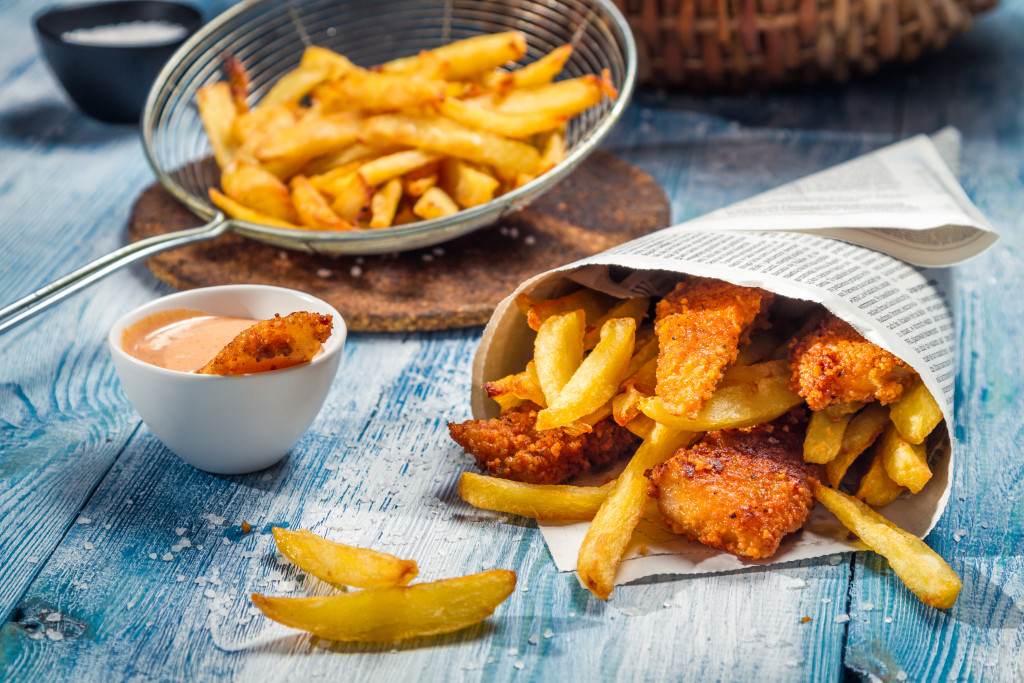The heart and soul of every city rely on the businesses that operate there. The stomach of every city relies on the affordability and accessibility of meals for its countless workers. Sadly, the pandemic has made the food industry suffer because of quarantine restrictions.
One of the industries that suffered the most during the pandemic is the food industry. Restaurants have lost more than $240 billion of their predicted sales for the year 2020, and it has also laid off more than two million of its workers. The industry was experiencing six years of growth, but this growth was wiped away because of the pandemic. There seems to be no light at the end of the tunnel for this industry, and for the millions of small business owners, their situation seems hopeless.
However, quarantine restrictions are now at ease this year as more Americans get vaccinated. Various businesses in the food industry are making a comeback, and some of these don’t even rely on digital channels to get consumers. Instead, some of them follow the traditional ways that the food industry does things, like food trucks.
If you’re someone who thought of opening a food truck this year, then you’ve come to the right place. We’ll discuss the essentials about this particular sub-sector and how much it will cost you to start one.
What Are Food Trucks?
Food trucks are an affordable alternative to restaurants, but they don’t share the same target demographic and business model. Food trucks are pretty much similar to many fast-casual establishments. Both depend on fast sales and small profit margins. It’s all about selling many meals every day for a fraction of the price that consumers will find in the restaurant. You can afford to sell at a lower profit margin because you don’t have to worry too much about rent and paying your employees.
Overall, restaurants care about the customer experience, and there are thousands of ways to do this. On the other hand, food trucks care more about the fundamentals: quality and the price. But inherently, both are the two sides of the same coin, each profiting in their own little ways. But how are food trucks faring for themselves during the pandemic?
The Rise of Food Trucks

Food trucks have experienced a surge as a sub-sector of the food industry. It grew by 7.5% during the years 2016 to 2021, despite the pandemic. This is because food trucks are versatile, and when compared to other sub-sectors, food trucks can offer meals on the go, hence reducing the need for social distancing.
Another benefit of food trucks is that they rely on feeding the city’s backbone: its workers. Because of its affordability and accessibility, this is the go-to choice for many workers who want a cheap meal to fill their empty bellies. Such a business model works so well in a country like the US because everyone is always on the go during their lunch breaks, even when the pandemic wasn’t around. This is a multi-billion sector that can help both experienced and new entrepreneurs alike find their fortune. But how much does it take for you to start a food truck business?
Overhead Cost
Don’t let the idea of food trucks being ‘a cheaper restaurant’ fool you. Food trucks still require a decent amount of investment, most of which will be coming straight out of your pocket.
Many experts believe that the right margin to start a food truck business is between $50,000 and $175,000, and that’s only outfitting a truck. This means that the ingredients you need every day are not yet on this list. Some food truck veterans believe that having $25,000 is enough to pay for your ingredients for at least three months or so. Overall, the required overhead cost of three months into operation is between $75,000 to $200,000.
But there are many ways you can decrease your overhead cost, such as purchasing a used truck for outfitting or maybe using kitchen appliances in your home to outfit your truck. Such personal investments can drastically reduce your starting costs.
Once you’ve started your business, you will be tied down by expenses such as electricity bills, employee salaries, and rent. Of course, you can run your business by yourself, and that’s what gives food trucks the edge against restaurants. But you should consider keeping track of other small expenses such as gas and parking tickets.
It’s Hard Work
Ultimately, all businesses require hard work, but this is crucial for a food truck business. You’ll only have yourself and a few other employees to rely on. Additionally, the quality of food you make should be up to your customer’s standards every day, so you’ll have to learn real fast how to make identical meals after every service. It requires a lot of dedication, but it will eventually give you enough to sustain yourself in the future.



